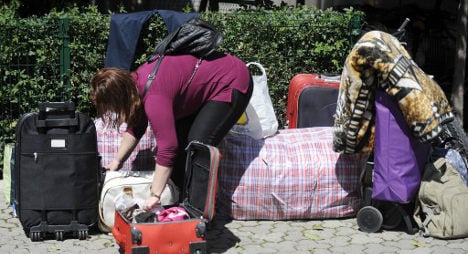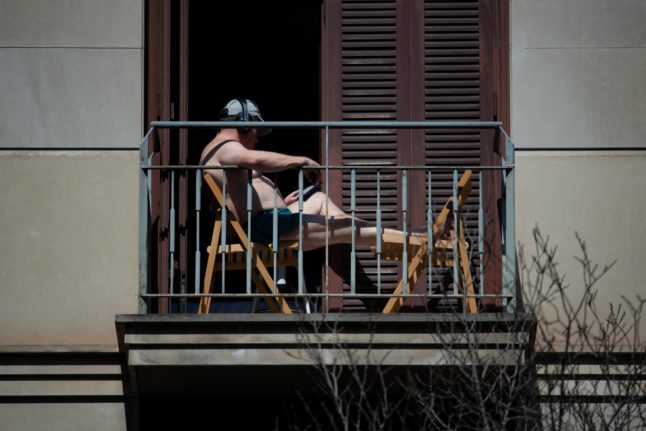A total of 49,694 families lost their homes, the Bank of Spain figures show.
Of these, 28,173 were evictions by court order, up 18.5 percent on 2012 figures.
Almost 80 percent of the properties involved were first homes, with the majority of these, 21,054, being seized on judges' orders.
A further 17,907 were given up voluntarily: in 13,178 cases the bank cleared the owners' outstanding debt (dación en pago).
"The figures show evictions are still an alarming problem (in Spain), this doesn't happen anywhere else in Europe," a spokesperson for the country's anti-evictions lobby group PAH told Spanish daily 20minutos.
The PAH also claimed what the Bank of Spain called 'voluntary handovers' were also a form of eviction.
According to sources consulted by 20minutos, however, the new figures reflect how financial institutions have been more open to negotiation than in previous years. The number of voluntary handovers on first homes was 9 percent higher in 2013.
On Monday the Bank of Spain also released figures higlighting the level of bad loans held by Spanish banks.
These peaked at the end of 2013 and then edged down in March to 13.39 percent from 13.4 percent.
Loans that were at risk of not being repaid – mostly mortgages – reached €192.77 billion ($264.5 billion) in March, said the central bank.
Spanish banks are burdened by bad loans made during a decade-long property bubble that burst in 2008, tipping the nation into recession and throwing millions out of work.
Despite shoring up their balance sheets with a €41.3 billion rescue loan from Spain's eurozone partners, the banks have struggled under stubbornly high bad-loan levels.
During the previous biggest economic crisis to hit Spain in the 1990s, such problematic loans peaked at 9.15 percent in February 1994, a level which has been largely overtaken by recent figures.



 Please whitelist us to continue reading.
Please whitelist us to continue reading.
Member comments